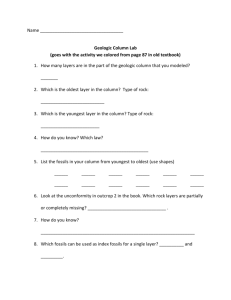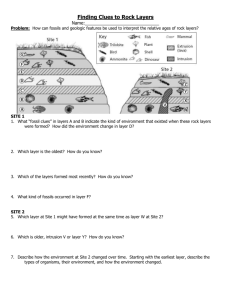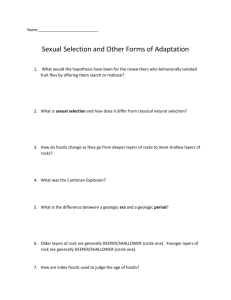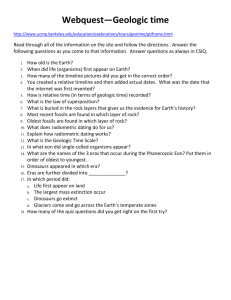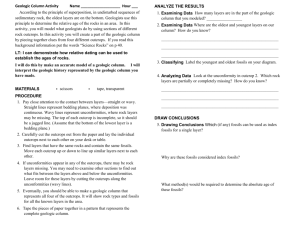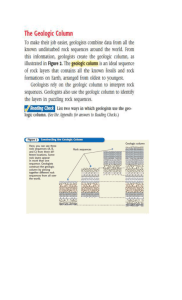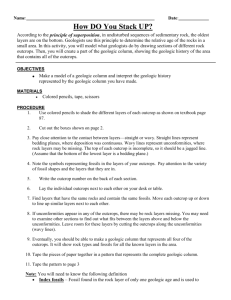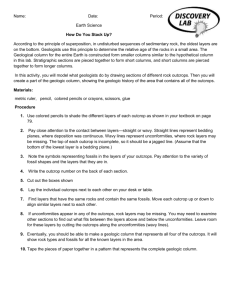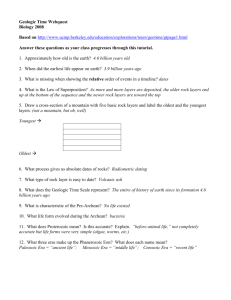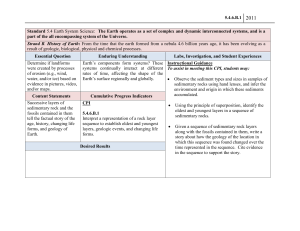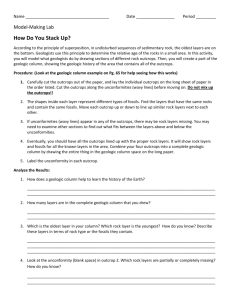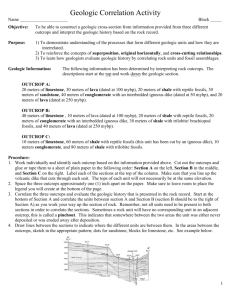How do You Stack Up?
advertisement
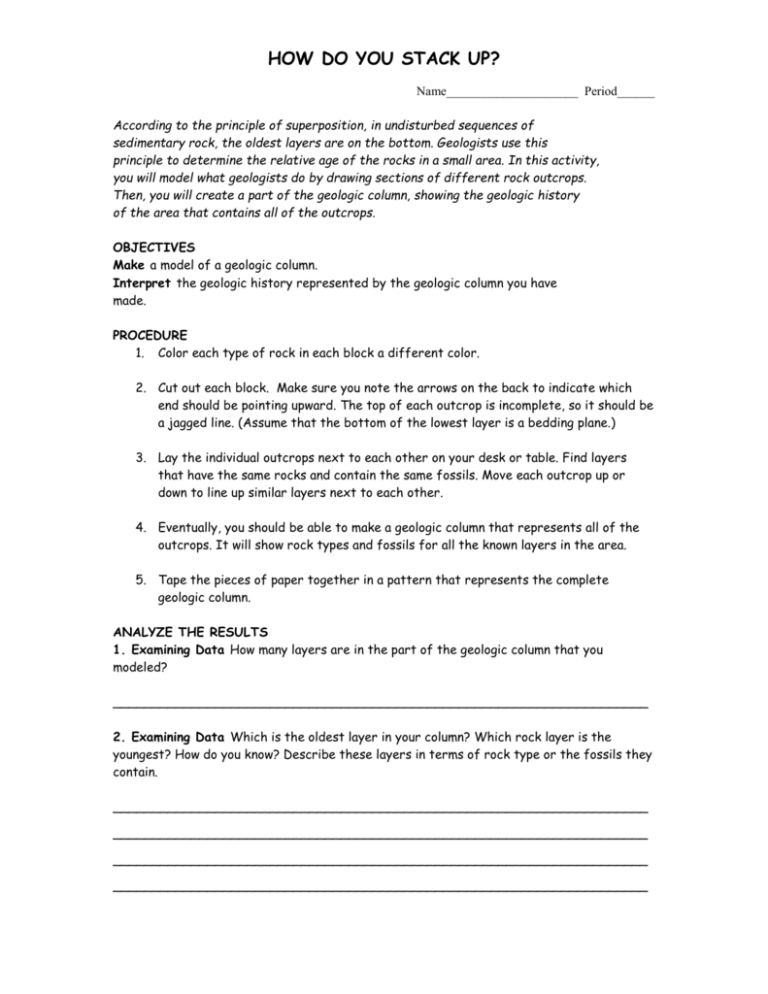
HOW DO YOU STACK UP? Name_____________________ Period______ According to the principle of superposition, in undisturbed sequences of sedimentary rock, the oldest layers are on the bottom. Geologists use this principle to determine the relative age of the rocks in a small area. In this activity, you will model what geologists do by drawing sections of different rock outcrops. Then, you will create a part of the geologic column, showing the geologic history of the area that contains all of the outcrops. OBJECTIVES Make a model of a geologic column. Interpret the geologic history represented by the geologic column you have made. PROCEDURE 1. Color each type of rock in each block a different color. 2. Cut out each block. Make sure you note the arrows on the back to indicate which end should be pointing upward. The top of each outcrop is incomplete, so it should be a jagged line. (Assume that the bottom of the lowest layer is a bedding plane.) 3. Lay the individual outcrops next to each other on your desk or table. Find layers that have the same rocks and contain the same fossils. Move each outcrop up or down to line up similar layers next to each other. 4. Eventually, you should be able to make a geologic column that represents all of the outcrops. It will show rock types and fossils for all the known layers in the area. 5. Tape the pieces of paper together in a pattern that represents the complete geologic column. ANALYZE THE RESULTS 1. Examining Data How many layers are in the part of the geologic column that you modeled? ____________________________________________________________________ 2. Examining Data Which is the oldest layer in your column? Which rock layer is the youngest? How do you know? Describe these layers in terms of rock type or the fossils they contain. ____________________________________________________________________ ____________________________________________________________________ ____________________________________________________________________ ____________________________________________________________________ HOW DO YOU STACK UP? Name_____________________ Period______ 3. Classifying List the fossils in your column from oldest to youngest. Label the youngest and oldest fossils. ____________________________________________________________________ ____________________________________________________________________ ____________________________________________________________________ 4. Drawing Conclusions Which (if any) fossils can be used as index fossils for a single layer? Why are these fossils considered index fossils? What method(s) would be required to determine the absolute age of these fossils? ____________________________________________________________________ ____________________________________________________________________ ____________________________________________________________________ ____________________________________________________________________
